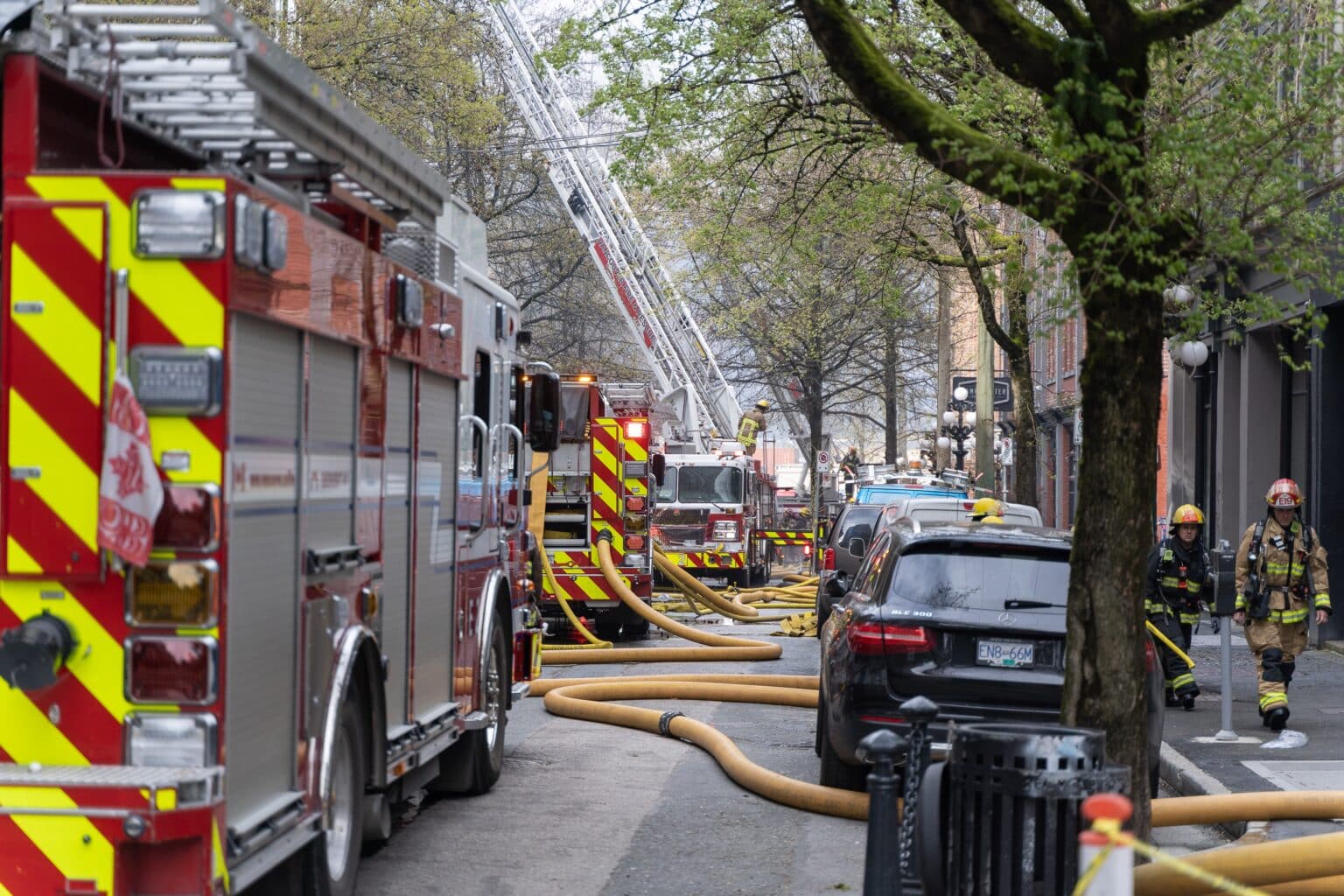Firefighter shortage in Canada intensifies as international reinforcements depart
- August 18, 2023
- 8:00 am


Iain Hoey
Share this content
Amid escalating fire risks, provinces and territories in Canada are voicing concerns over the departure of hundreds of international firefighters.
The immediate worry stems from expiring contracts and the need for these firefighters to address blazes back in their home countries.
This surge in wildfire emergencies, especially in Canada, has prompted at least one province and territory to urgently request additional assistance.
International support sees dramatic decrease
Earlier this year, a record area was engulfed by flames across Canada, especially pronounced in regions like British Columbia, the Northwest Territories, Yukon, and Alberta.
Contrasting the situation, Marieke deRoos from the Canadian Interagency Fire Fighting Centre (CIFFC) commened: “680 international firefighters are battling blazes across Canada, compared to their record peak in early July, when 1,754 were deployed.”
CIFFC is crucial in coordinating the movement of interprovincial and foreign fire personnel within Canada.
Federal efforts to mitigate firefighter shortage
During a federal briefing, Michael Norton, a director-general at the Canadian Forest Service, said: “Ottawa is in active talks with other countries to supply more firefighting help.”
The aim is to prevent a dire staffing crisis during what he described as a “challenging marathon” of a fire season.
However, precise details regarding these negotiations remain undisclosed by Natural Resources Canada, responsible for overseeing the federal government’s wildfire response.
Challenges on the front lines
Facing an intimidating blaze threatening its capital, the Northwest Territories confirmed its plea for additional manpower to aid the 65 South African firefighters and 120 Canadian soldiers currently battling 236 active wildfires.
Mike Westwick, representing the Northwest Territories, said: “We’ve got folks who are tired – they’ve been working all summer – and we need to keep refreshing people.”
The BC Wildfire Service also announced its ongoing plea to CIFFC for added manpower.
This comes in light of the recent exit of close to 200 American and Australian firefighters.
Arrival of reinforcements from Mexico
The BC Wildfire Service expressed optimism as over 100 firefighters from Mexico received clearance for deployment and are expected within a week.
However, while Alberta currently hosts 200 firefighters from various countries, the province is not seeking additional help.
Changing dynamics and the role of climate change
The dynamics of the situation are fluid. As Marieke deRoos explained: “Things shift and change almost on an hourly basis.”
Yet, the overarching narrative suggests an alarming trend.
With climate change exacerbating fire seasons, experts and critics alike are urging Ottawa to consider a national wildfire personnel team.
The intent is to bolster provincial efforts and reduce dependency on international partners, who sometimes can take an extended period to arrive and combat fires.
Immediate outlook and local efforts
Sarah Budd from the BC Wildfire Service shed light on upcoming weather patterns that might worsen the situation.
However, she commended the determination of local and international crews working tirelessly to contain the situation.
Comment from International Fire & Safety Journal
The rapid departure of international firefighting personnel from Canada is deeply concerning, reflecting the broader challenges many nations face due to escalating fire risks.
As climate change intensifies, collaboration and resource sharing become even more critical.
This recent development underscores the need for a more coordinated, international approach to tackling wildfires, ensuring that nations can lean on each other during these challenging times.

